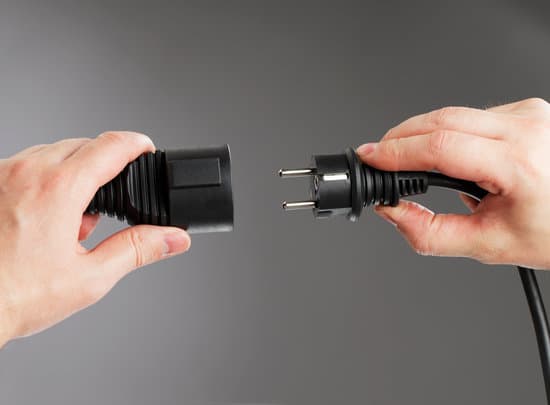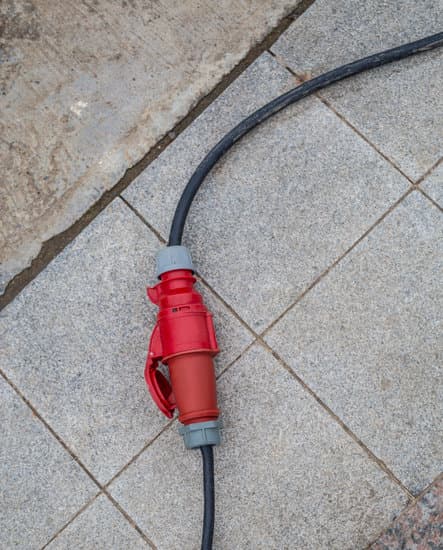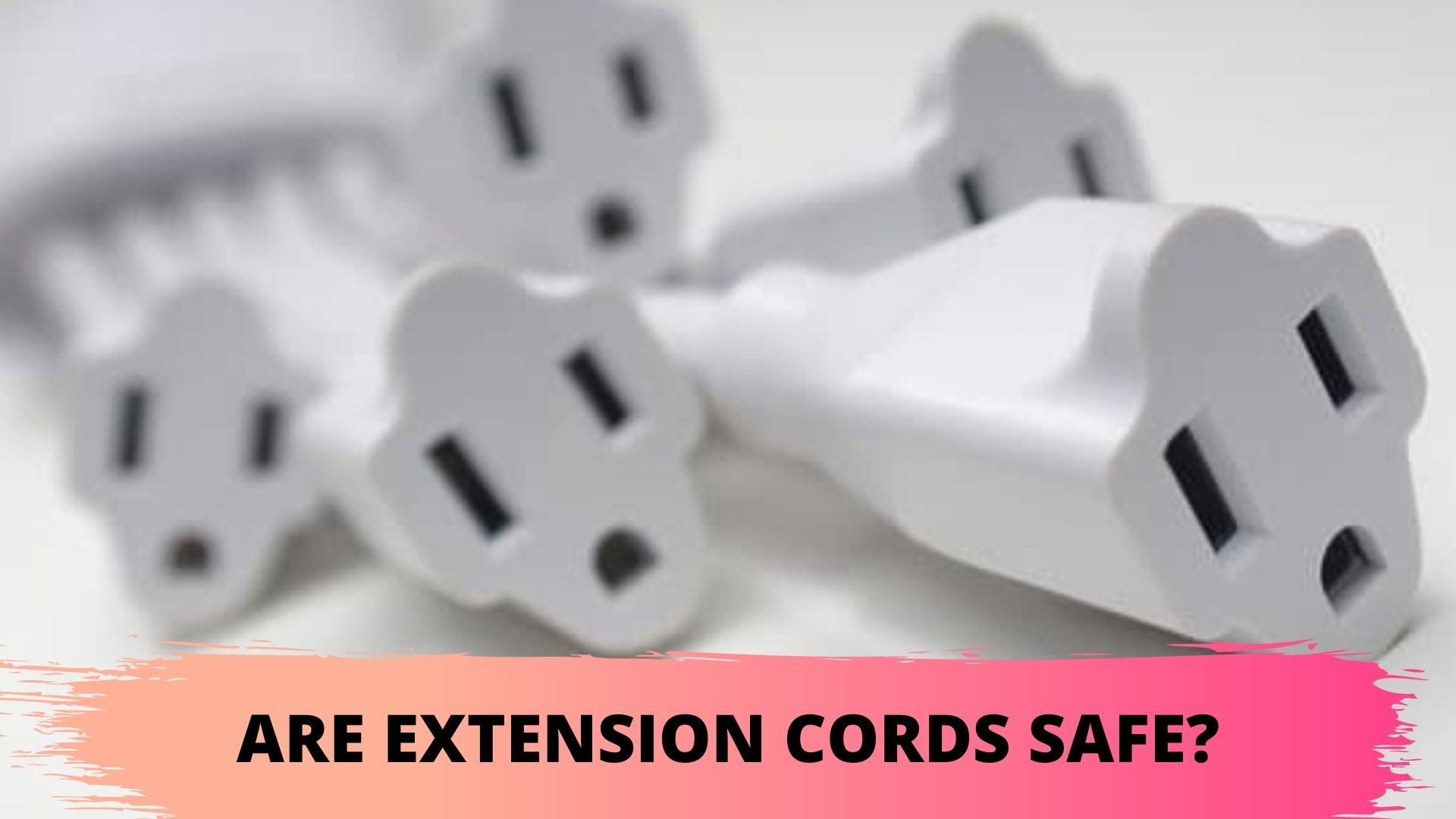Extension cords are so convenient. Most homes have electrical outlets but they are rarely positioned in the right place. And unless the appliance you want to operate is light enough for you to move closer to the outlet, it is normally easier to use an extension cord to bring the outlet to the appliance.
That being said, for all their advantages, one cannot ignore the risks that are associated with the use of extension cords. These devices start fires all the time, and it makes you wonder whether they are as safe as their manufacturers suggest.
Are Extension Cords Safe?
Extension cords are dangerous. They kill dozens of people every year. They also injure thousands. In that regard, you can probably conclude that they are not safe. This is because extension cords are bundles of insulated wires that allow electrical current to flow through them.
This generates heat. An extension cord that has too much current running through it can overheat, melting the plastic components which can lead to short circuits, fires, electrocutions, and the like. The user can reduce the risks associated with an extension cord by selecting the right device and using it appropriately.
In the absence of proper practices and common sense, an extension cord is a clear and present danger to the user’s home.
What You Need to Know About Extension Cords
If you want to make effective use of your extension cords, you must first understand the factors that affect their operations, including:
Function
ESFI believes that every extension cord on the market is designed to perform a particular function.
https://www.esfi.org/resource/extension-cord-safety-tips-478
You must limit each extension cord to the role it was designed to play to avoid potential short circuits and fires. You can determine a cord’s function by looking at the label.
Extension cords that are suitable for general use, for instance, have an ‘S’ mark. Outdoor cords, on the other hand, have a ‘W’ mark. Cords made from vinyl thermoplastic feature a ‘T’ label. ‘O’ stands for ‘oil-resistant’, and ‘P’ for ‘Parallel Wire Construction’.
Gauge
The gauge is concerned with the thickness of the wire. It will affect the volume of electricity the wire can carry. It will also impact the amount of heat the wire can contend with.
Length
The length is just as important as the gauge. It affects the voltage drop, that is to say, the amount of voltage lost as an electrical current travels through the wires of the extension cord. Longer wires are associated with a greater drop in voltage.
You must understand the attributes of an extension to ensure that it is used in the right setting for the right purposes. Professionals use the gauge and length of an extension cord to determine whether it is meant for light, medium, or heavy-duty functions.
Extension Cord Do’s and Don’ts

Safety+Health understands the danger that extension cords pose, which is why they want you to do certain things to protect yourself and your home from harm whenever you use these devices:
https://www.safetyandhealthmagazine.com/articles/11177-extension-cord-dos-and-donts
Do’s:
- Your extension cords should be in the best possible condition before you use them. This is why you are encouraged to check them for defects and damage before you plug appliances into their outlets.
- You should only use an extension cord after making sure that the plug is inserted fully into the wall outlet.
- Keep extension cords away from water. ESFI holds a similar opinion. They don’t want cords to run through snow and water.
- Extension cords that are not in use should be unplugged from the wall outlet.
- You should only use extension cords on a temporary basis. They can keep your appliances running while you prepare permanent wiring. Extension cords are not meant for permanent use.
- If at all possible, prioritize cords with three-prong plugs. They are much safer.
- State Farm wants you to keep indoor extension cords inside. If you want to operate exterior appliances, use outdoor extension cords only.
- You are also encouraged to read the instructions that come with your cord. The manual will show you the best way to use your extension cords.
It isn’t enough to know what you should do with an extension cord. You must also understand the factors and elements that must be avoided:
Don’ts:
- Don’t cover extension cords. That will only cause them to overheat.
- Don’t use a three-pronged plug in a two-pronged outlet. To do so, you would have to remove the grounding pin in the cord’s plug. That would make the extension cordless safe.
- I discourage the use of ungrounded cords. It also frowns upon homeowners that use cords of the wrong gauge.
- Don’t overload extension cords by attaching too many appliances to them.
- I want you to stop using cords that feel hot. You should unplug and replace them. They also expect users to prevent their cords from touching flammable material like bedding items.
- You should never daisy chain extension cords. Rather than getting a longer cord, some people prefer to connect extension cords together. This practice is dangerous because it causes overheating and overloading. You are more likely to start a fire, which is why I encourage homeowners to simply acquire cords in the length they need.
Extension cords make life easier. They bring electrical outlets closer to appliances, allowing you to power items that are too far from the wall outlet. But accidents happen all the time. People spill drinks on extension cords every day.
Others are forced to use them outside and it makes you wonder: what happens when it rains? What happens to the extension cord when the rain touches it? The objective of this guide is to give you some much-needed answers to those pressing questions.
Can Extension Cords Get Wet? Are They Waterproof
Extension cords get wet. However, you can use them afterward if you take the proper precaution. You don’t have as much to worry about if the water only touched the plastic and rubber sections. Things become far more complicated if the plug becomes wet or if the liquid enters the outlets on the extension cord.
For the most part, an extension cord getting wet isn’t the end of the world. The water won’t necessarily destroy it.
What Happens if an Extension Cord Gets Wet?
As was noted above, water is only problematic if it enters the sockets or the plug. But even in such situations, the consequences will depend on whether or not the water interacts with exposed wires:
Electrocution
In some cases, an extension cord can electrocute the person that touches it, particularly if they are wet or if they touch an exposed wire. If the voltage is low, it will only cause pain. But in some cases, it is high enough to kill the individual interacting with the extension cord.
Fires
This is the biggest worry. People believe that a wet extension cord can cause a fire. They are not wrong. According to Gorman Lightning, any attempt to use a wet electrical outlet by plugging an appliance into it can cause a short circuit the consequences of which include melted wires, an overload in the outlet, and an electrical fire.
Hunker blames potential fires on the fact that moisture in an outlet may cause a rapid increase in the current being drawn. If there is no fuse, the wires will heat to a point where a fire starts. Hunker also notes that water can corrode wires and create rust if it isn’t removed.
If you have a GCFI extension, it will shut down the moment it detects an anomaly, such as electricity running through water or people.
Can You Use Extension Cords in the Rain?
You are free to use an extension cord outside so long as it was designed for outdoor use. Outdoor extension cords have superior insulation. They are protected from damage related to moisture, sunlight, and drastic temperature changes.
There is such a thing as indoor extension cords and outdoor extension cords. Indoor extension cords are not only light and flexible but they are more vulnerable to moisture.
All those factors will harm an indoor extension cable, destroying its insulation and leaving you vulnerable to fires and electric shocks.
An extension cord can survive the rain if it is rated for outdoor use and if it is in good condition. However, the plug should be kept out of the rain.
How Can You Identify an Extension Cord that works Outside?

Before you can use your extension cord to operate your speakers at a backyard barbeque or to light your exterior Christmas lights, you need to ensure that it was meant for outdoor use. The following will help you:
1). Lable – Mr. Electric encourages consumers to look for a ‘W’ mark on the cord’s packaging. That letter is a sign that the cable can be used outside.
2). Color – In some places, these cords have bright orange rubber. They also have plastic covers that offer added protection.
3). Prongs – Outdoor cords use three-prong plugs, not two. Some indoor cords have three prongs. But quite a few use two-prong plugs as well. The third prong makes the cord safer because it plays the role of a grounding wire.
4). Amperage – The amperage can tell you a lot about the capabilities of a cord. In the case of outdoor extension cords, their amperage is typically high, at least in comparison to indoor cords.
What Should You Do When Your Extension Cord Gets Wet?
If you just spilt water all over your extension cord, I don’t want you to panic. I want you to do the following to avoid fires and electrocution:
1). To be on the safe side, you should turn the main circuit breaker off. Depriving the cord of power will prevent accidents from happening.
2). If an appliance is plugged into the cord, you should go ahead and unplug it. However, you should only do so after drying your hands. If the cord has a switch, flip it to the ‘Off’ position. Do not touch exposed wires or metal components.
3). At this point, it should be safe to unplug the cord from the wall outlet. Remove it from the wet floor. Don’t get the plug wet.
4). Do what you can to dry the extension. Wait for a few hours before using it. Some people prefer to wait for some days. The waiting period depends on how much liquid the extension cord was exposed to.
5). While you wait for the cord to dry, make it straight. Don’t let it become coiled.
What to Do with a Wet Extension Cord?
It depends on the type of extension cord you have:
1). If you have a sealed device, you have no way of checking the interior to determine the amount of water that got in. In such cases, you should wipe the exterior with a dry rug, including the plug. You can dry the water on the inside using compressed air. You can also use a blow dryer without the heat.
2). If you can open the extension cord, you can remove the water using a paintbrush. Methylated spirit is another effective solution that people use to eliminate residue water. You can do the same to the plug if it got wet.
Conclusion
A lot of people cannot believe that extension cords are dangerous because they have been using them for so long without any problems. But that is only because most people use extension cords to power light appliances.
Extension cords are a danger. They create a risk of electrical fires and electrocution. But you can protect yourself by turning the main circuit breaker off, drying your hands, and unplugging any attached appliances. If you want to use the cord outside, you should get a device rated for outdoor use. Even then, RE Williams wants you to prioritize GCFI extension cords that shut the power to that circuit down when they detect problems.
Extension cords become a hazard when you use them to operate powerful items. This is because they are expected to draw and transmit a lot of power, and that introduces risks associated with overheating, short circuits, and electrocution.
You are also just as likely to trip on an extension cord. This is why homeowners are discouraged from taking extension cords lightly. Use them as the manual says. Try to match the length, gauge, and rating of the cord to the job you want it to do. This is the only way to protect yourself and your home.

